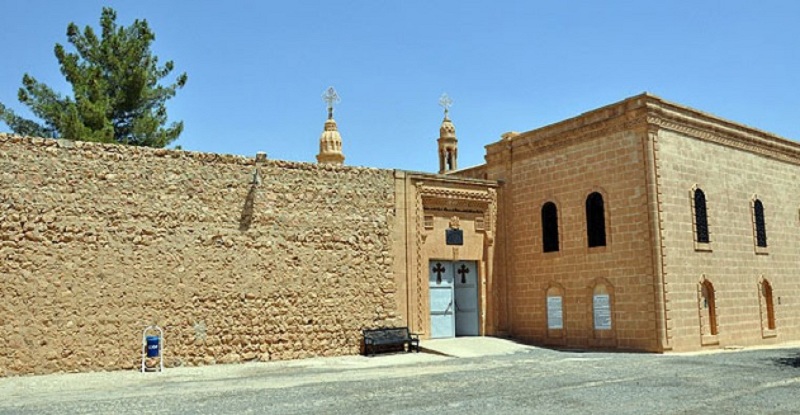


Kuryakos Ergün, the Assyrian spokesman for the St. Gabriel Monastery, one of the affected properties, said the issue is still not resolved, and the final solution must be the transfer of the deed of ownership to the St, Gabriel Monastery Foundation, and the transfer of the deeds of all the other properties to their respective owners.
Related: Turkey Seizes 50 Assyrian Churches and Monasteries, Declares Them State Property
Related: Turkey Seizes Assyrian Monastery Property
Related: The Case of the St. Gabriel Assyrian Monastery in Midyat, Turkey
The property seizures generated intense criticism and backlash from Assyrians and governments around the world.
The Assyrian Confederation of Europe issued a statement today condemning the confiscations. Here is the full statement:
Confiscation of Assyrian church properties is not in the Interest of Turkey The Assyrian Confederation of Europe condemns the recent confiscation of approximately 50 Assyrian church properties by Turkish authorities, namely the state treasury and the Religious Affairs Directorate, the Diyanet.Invaluable and historic churches, monasteries and cemeteries -- many of which are over a thousand years old, and which constitute some of the most profoundly rooted and culturally significant material pillars of the Assyrian identity itself -- are now in jeopardy.
This act of confiscation is a grave violation of the human and cultural rights of one of Turkey's most exposed and vulnerable indigenous nations, serving as a stark contrast to the image Turkey has projected in recent years as a Muslim country tolerant of non-Muslims and minority groups in general. This recent development sends a negative signal to Assyrians in Turkey as well as Assyrians in diaspora who have undertaken (at considerable risk) to not only preserve, but repopulate and rebuild, the ancient Assyrian presence in Turkey.
Turkish authorities must work together with the Assyrian community in Turkey to reverse the confiscation of properties and make sure that measures are taken to guarantee that Assyrian ecclesiastical property is excluded from the municipal reform which has facilitated the confiscations.
Turkey must put in place legal and political measures that protect the rights of minorities and shield them from sweeping reforms and decisions that would threaten their very presence in Turkey. The implementation of protective measures and mechanisms for indigenous groups is an integral practice of every modern and democratic society.
The Assyrian Confederation of Europe intends to follow this issue closely and work to help highlight and resolve the problem. Our hope is for a political solution that would avoid the need to transfer the issue to the European Court of Human Rights.
The Assyrian Confederation of Europe
Brussels, July 6, 2017

or register to post a comment.